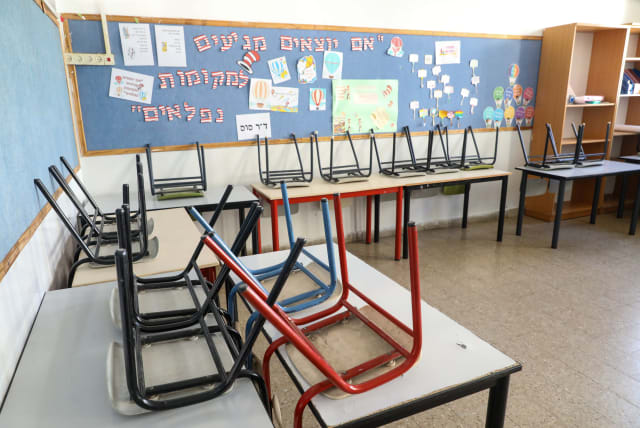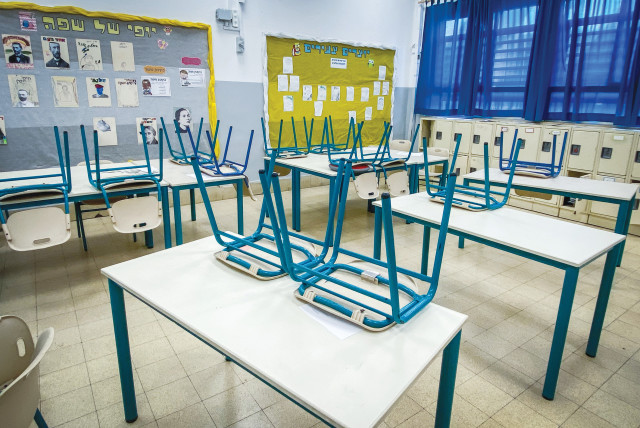80% of Israel's Ethiopian, Indian immigrants opt for religious education - report

"Religious state education in Israel serves as an ideal environment for immigrants from Ethiopia and India," said MK Moshe Solomon, who added that these schools need more resources.
Eighty percent of young olim (immigrants) from Ethiopia and India in elementary school age enroll in the Chemed (State-Religious Educational tracks), according to a report from the Knesset Research and Information Center (RIC), commissioned by MK Moshe Solomon. This trend continues into high school, where the majority of these immigrants still prefer the Chemed framework.
Solomon (Religious Zionist Party) initiated this special report to investigate the challenges and strains placed on religious education due to the overwhelming preference of these immigrants for such educational systems.
The findings of the report indicate that in many cities, new immigrants often have to enroll in institutions far from their residence and outside their local municipal boundaries. This is attributed to the incapacity of nearby institutions to cater adequately to these newcomers. A significant number of these cities, where students are compelled to travel, are on the periphery of the country, including Shaar HaNegev, Safed, Nahariya, and others.
Why is religious state education ideal for Ethiopian, Indian immigrants in Israel?
Solomon, who made aliyah from Ethiopia, commented on the results, "Religious state education in Israel serves as an ideal environment for immigrants from Ethiopia and India. The sense of community, inclusivity, and shared love for Israel provide these new students with a rich foundation to integrate seamlessly with their peers, helping them adjust more quickly and effectively.
“However, this strong preference places a strain on certain institutions, especially in outlying cities, forcing many immigrants to attend schools far from where they live. We must address this challenge. With the insights from this report, we aim to allocate more resources and teaching hours to the Chemed system to better accommodate incoming immigrants to Israel."
Born in 1975 in Shira, Ethiopia, Solomon embarked on a challenging journey to Sudan as a child, aiming to immigrate to Israel. After three years and various hardships, including menial jobs, his family connected with Mossad agents in 1984 and settled in Israel, first in Or Akiva and then Ashkelon.
As of the end of 2021, the Ethiopian immigrant population in Israel stood at approximately 165,000 individuals. Out of this number, about 91,000 were born in Ethiopia, while the remaining 74,000 had parents who were born in Ethiopia. This group constitutes about 1.75% of Israel's total population.
There are approximately 85,000 Jews of Indian origin in Israel, according to the Indian embassy in Tel Aviv. The main waves of immigration into Israel from India took place in the 1950s and 1960s. The majority is from Maharashtra (Bene Israelis), in addition to relatively smaller numbers from Kerala (Cochini Jews) and Kolkata (Baghdadi Jews). In recent years, some Indian Jews from Mizoram and Manipur (Bnei Menashe) have been immigrating to Israel. While the older generation still maintains a deep bonding with India, the younger generation has become increasingly assimilated into Israeli society.
The Bnei Menashe, known as the Shinlung in India and translated from Hebrew as "Children of Menasseh," are a Jewish community from the India-Burma border region. Hailing from various Tibeto-Burmese ethnic groups, they believe they are descendants of one of the Lost Tribes of Israel. While some members of this community have embraced Judaism, their total population is approximately 10,000. As of 2020, approximately 4,000 Jews have made aliyah to Israel from Bnei Menashe, leaving around 7,000 members of the community still in India. 
Jerusalem Post Store
`; document.getElementById("linkPremium").innerHTML = cont; var divWithLink = document.getElementById("premium-link"); if (divWithLink !== null && divWithLink !== 'undefined') { divWithLink.style.border = "solid 1px #cb0f3e"; divWithLink.style.textAlign = "center"; divWithLink.style.marginBottom = "15px"; divWithLink.style.marginTop = "15px"; divWithLink.style.width = "100%"; divWithLink.style.backgroundColor = "#122952"; divWithLink.style.color = "#ffffff"; divWithLink.style.lineHeight = "1.5"; } } (function (v, i) { });

